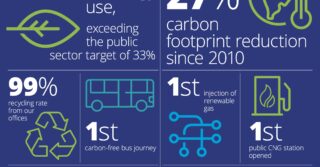Education in a Time of Crisis
On Thursday, May 28th we held the final webinar in The BITCI Webinar series, Education in a Time of Crisis.
We heard from the following speakers:
- Dr. Aideen Cassidy, Principal, Beneavin De La Salle College, Dublin 11
- David Coleman, Clinical Psychologist & Adjunct Associate Professor, School of Psychology, UCD
- Deirdre Kennedy, Corporate Citizenship / CSR Lead, IBM Ireland
- Cian O’Brien, Mayfield/The Glen Schools Completion Project, Cork
- Pia O’Farrell, Assistant Professor in Assessment, School of Policy & Practice, DCU
The discussion with Clinical Psychologist David Coleman focused on growing anxieties being experienced by children during Covid-19 and how they are going to need help to address them. David drew our attention to the impact of the lockdown on teenagers, who have missed out socially as their usual peer networks have been temporarily removed from them. Children from disadvantaged backgrounds will be impacted more, and we may not know the full extent of the damage until down the line.
In terms of providing support for teenagers and children, David said it’s important that teenagers continue to receive support and role modelling from the business community, as getting an insight into their potential future job prospects will provide hope and embolden their sense of resilience. For parents, David said they need to give themselves a break. Choosing to home school and home schooling by default are completely different things. There is a limit to what parents can do; they should not be consumed by guilt. Parents should relieve themselves of guilt because the educational hiatus for children and teenagers will not be a critical loss. Simply engaging with children in terms of day-to-day interactions helps them to learn about the important things in life, not just academic books. If all else fails, just focus on reading with your child and encourage them to read broadly and widely.
Dr. Aideen Cassidy outlined the challenges facing DEIS schools. We heard how the school’s main priority in the early days of school closures was sourcing food for the most challenged families of pupils who attend the school. Forty families were identified, fourteen of whom are homeless. Aideen and her colleagues sourced food for the families. She said they couldn’t have been more appreciative as they were so stressed and worried about making ends meet. Aideen said the school brought academic packages, games and colouring books to students to try give them some sense of normalcy at a time when their routines have been turned upside down.
Pia O’Farrell echoed previous concerns around children and the education system. Children have finished school abruptly, a transition that can have an impact on their coping mechanisms. She explained how getting some children back to school could be a struggle and that it’s important that parents recognise that anxiety is an emotion most responsive to intervention. Small steps like children reconnecting with peers should be encouraged, when safe to do so.
Cian O’Brien outlined his work helping children get through education. Similar to Aideen, he said a big challenge for students has been a lack of food and technology in households. Food hampers are so important to families now more than ever. He said families light up when Cian or a team member show up at homes, as their visits provide a moment of reprieve for students to talk about how they are feeling.
Deirdre Kennedy outlined how IBM sought to figure out what they could do on the ground, particularly for students who attend disadvantaged schools. IBM partnered with SISCO to help DEIS schools develop online platforms. SISCO provided the licenses and IBM provided the resources to train teachers and connect schools to their students. IBM staff trained the teachers and provided materials to support them. A helpline support was established and teachers were offered one-on-one training. The social connection was vital. Teachers reached out to small groups of students first.
Over 100 DEIS schools are now on board with the online platforms, with 30,000 students taking part. Some of the schools have gone from zero in terms of technological resources to now connecting with students and families. Some students, however, don’t have access to technology and this is something that will have to be addressed. Deirdre praised the teachers for persevering and working hard to support students and families. She also reiterated David’s point, outlining how the business community can play a role in providing career opportunities or work experience for students from disadvantaged backgrounds.
The webinar was extremely revealing and thought-provoking.
Check out the upcoming webinars.






